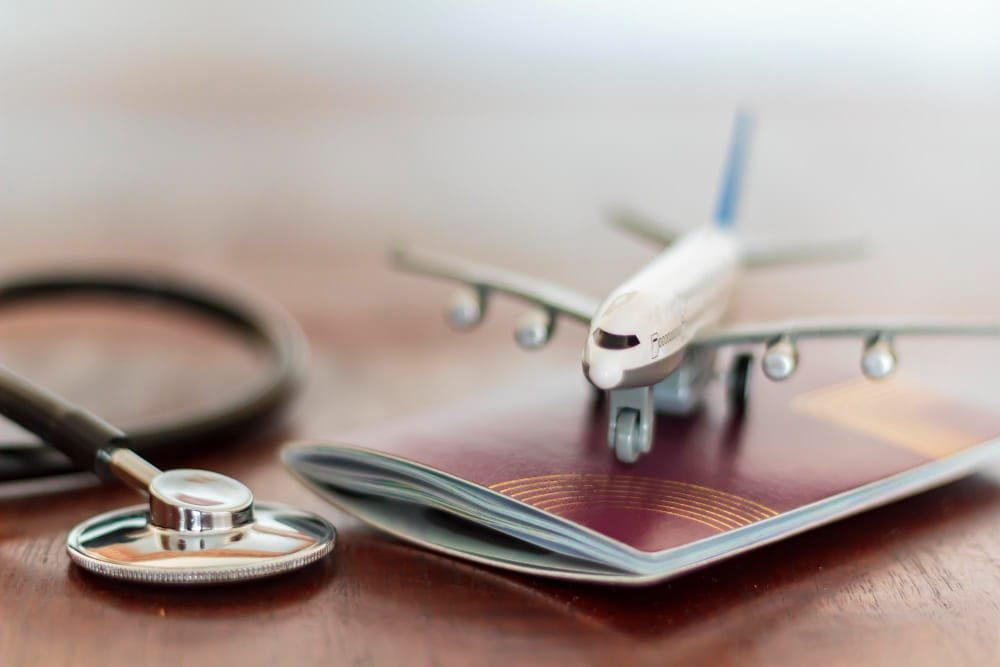Bariatric Surgeries
Gastric Balloon
- Definition
- Procedure
- Weight Loss
- Considerations
More Services
Menu
- +90 542 749 74 35
- +90 542 749 74 35
- info@aresmedtravel.com
- Camikebir Mah. 97/9 Sok. C Blok No:12 İç Kapı: 1 Seferihisar/İzmir

What is a Gastric Balloon?
A gastric balloon is a non-surgical, minimally invasive weight loss procedure designed to help individuals achieve significant weight reduction without the need for traditional surgery. During this procedure, a deflated balloon is inserted into the stomach and then inflated, occupying space within the stomach and promoting a sense of fullness. This limits food intake and assists patients in making healthier dietary choices, ultimately resulting in weight loss
Who is a Candidate for a Gastric Balloon?
Gastric bypass surgery is typically recommended for individuals who:
- Have a BMI of 40 or higher, or a BMI of 35 or higher with serious obesity-related health conditions such as type 2 diabetes, sleep apnea, or high blood pressure.
- Have made significant efforts to lose weight through diet and exercise, with limited success.
- Are committed to making long-term lifestyle changes and dietary modifications.
- Understand the potential risks and benefits of the procedure.
It’s crucial to consult with a qualified healthcare professional to determine if gastric bypass is the right choice for you. They will evaluate your unique medical history, weight loss goals, and overall health to make an informed recommendation.
What are Gastric Balloon Complications?
A gastric balloon is generally considered safe, but like any medical procedure, it carries potential risks and complications. Common complications may include:
- Nausea, vomiting, or discomfort during the initial adjustment period.
- Gastrointestinal issues such as acid reflux or ulcers.
- Balloon deflation or leakage.
- Infection at the insertion site.
What Must Be Done Before a Gastric Balloon?
Before undergoing a gastric balloon procedure, specific preparations are essential:
- Consultation with a healthcare provider to assess eligibility and discuss the procedure.
- Nutritional counseling to understand dietary changes necessary for successful weight loss.
- Psychological evaluation to ensure readiness for the procedure.
- Lifestyle modifications to create a healthier pre-procedure condition.
- Review and adjustment of any current medications or supplements.
Following pre-procedure guidelines is vital for a smooth experience.
What Must Be Done After a Gastric Balloon?
Post-operative care is just as important as pre-operative preparation. After gastric sleeve surgery, patients are encouraged to:
- Follow a strict post-operative diet and avoid certain foods.
- Maintain a regular exercise regimen.
- Attend follow-up appointments with their healthcare provider.
- Monitor nutritional intake and consider supplements.
- Make necessary lifestyle changes to support long-term weight loss and overall health.
Compliance with post-surgery instructions is essential for the best results.
Why Turkey for Gastric Balloon?
Turkey is a top destination for medical tourism, offering high-quality healthcare services, experienced medical professionals, and advanced technology. Patients choose Turkey for gastric balloon procedures for several reasons:
- Cost-effective treatments compared to many Western countries.
- Access to world-class facilities and modern medical procedures.
- The opportunity to combine medical treatment with a culturally rich and historically significant travel experience
Frequently Asked Questions
The gastric balloon procedure in Turkey is considered safe and reliable. The country’s medical facilities adhere to stringent standards, and experienced specialists offer quality care, making it a popular choice for medical tourists.
The cost of a gastric balloon procedure in Turkey is generally more affordable than in many Western countries. Prices can vary depending on the clinic and the specific package chosen. It’s best to consult with a trusted medical travel agency for an accurate estimate.
When selecting a specialist for a gastric balloon procedure in Turkey, consider their expertise, qualifications, and success rate. Verify their credentials, read patient reviews, and inquire about their experience with gastric balloon procedures.
The length of your stay in Turkey for a gastric balloon procedure typically includes a short hospital stay, usually 1-2 days, followed by a recovery period of a few days. Your medical team will provide a personalized treatment plan for a safe and comfortable recovery.
Following the gastric balloon procedure, adhering to dietary recommendations is vital for successful results. Your healthcare provider will provide a detailed dietary plan, which often begins with liquids and progresses to soft foods, while avoiding certain items.
Yes, Turkey offers a fantastic opportunity to combine medical treatment with exploring its rich culture, historical sites, and natural beauty. Many patients choose to extend their stay to enjoy the vibrant cities and scenic landscapes Turkey has to offer.
Scheduling a consultation and booking your gastric balloon procedure in Turkey is a straightforward process. Reach out to a reputable medical travel agency like Ares Medtravel, which will assist you in selecting the right specialist and clinic, planning your trip, and managing all necessary arrangements for a seamless experience.
Yes, medical facilities in Turkey are well-prepared to support international patients. Many hospitals have dedicated international patient departments with multilingual staff to assist with various aspects of your medical journey, including translation, accommodation, transportation, and addressing any concerns you may have.
Weight loss results following a gastric balloon procedure can vary from person to person, but most patients typically begin to observe noticeable changes within a few weeks after the procedure. Substantial and sustainable weight loss often occurs during the first six months with continued progress thereafter.
There are generally no strict age restrictions for a gastric balloon procedure, as eligibility is based on individual health assessments. Consult with a medical professional to determine if the procedure is suitable and safe for your unique situation.

